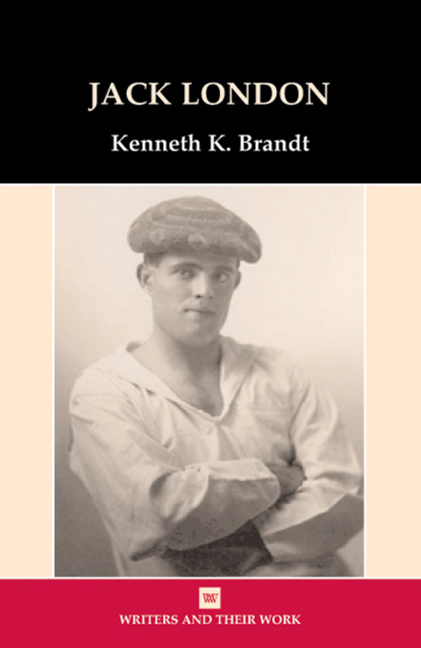Book contents
- Frontmatter
- Contents
- Biographical Outline
- Abbreviations
- 1 Jack London: An Adventurous Mind
- 2 Getting the Perspective: The Northland Stories
- 3 Into and Out of the Wild: The Call of the Wild and White Fang
- 4 Class Struggle: Socialist Writings and The Iron Heel
- 5 Individualism and its Discontents: The Sea-Wolf and Martin Eden
- 6 Free and Determined: Questions of Agency in The Road and The Star Rover
- 7 Sailing West: The Pacific Stories
- 8 Coda: Literary Legacy and Scholarship
- Notes
- Select Bibliography
- Index
2 - Getting the Perspective: The Northland Stories
- Frontmatter
- Contents
- Biographical Outline
- Abbreviations
- 1 Jack London: An Adventurous Mind
- 2 Getting the Perspective: The Northland Stories
- 3 Into and Out of the Wild: The Call of the Wild and White Fang
- 4 Class Struggle: Socialist Writings and The Iron Heel
- 5 Individualism and its Discontents: The Sea-Wolf and Martin Eden
- 6 Free and Determined: Questions of Agency in The Road and The Star Rover
- 7 Sailing West: The Pacific Stories
- 8 Coda: Literary Legacy and Scholarship
- Notes
- Select Bibliography
- Index
Summary
‘It was in the Klondike I found myself,’ wrote London. ‘There nobody talks. Everybody thinks. There you get your perspective. I got mine’. London's 1897–8 Northland odyssey provided a frontier landscape through which he could vividly dramatize cultural, economic, and ethical concerns. In keeping with his ‘motif-under-the-motif’ technique, the surface layers of these stories are exciting and adventurous, while on lower levels they engage more penetrating moral and philosophical issues. The Northland's pitiless frozen environment mirrors capitalism's ruthless social Darwinism. Its desolate blankness embodies the post-Nietzschean ‘god-is-dead’ universe, and its inhospitable harshness mandates an ethical response of solidarity. For London, this was a Naturalistic setting par excellence that let him transport and enthral readers, while casting socio-philosophical issues into sharper relief.
London's Darwinian-existential Northland is ultramodern, but the behavioural responses he endorses are less radical departures from traditional values. Comradeship, reciprocation, and resilience are applauded. Selfishness, braggadocio, and shirking are scorned. The rub for his characters comes in imposing stabilizing principles amid fluid circumstances of moral ambiguity. The key survival traits in these instances are adaptability, cooperative grit, and imagination. London, it seems, is testing the efficacy of such conduct not only within a far-flung Northland environment, but also against the rapidly changing conditions of an increasingly urbanized and commercialized modern world that was growing ever more impersonal, coercive, and mechanized.
In ‘The White Silence’, London's austere rendering of Northland geography displaces the comfortable Victorian worldview of a God-centred universe, but the virtues of comradeship and self-sacrifice retain decisive compensatory value. The story begins in medias res as a white prospector, Mason, his pregnant Indian wife, Ruth, and the Malemute Kid trudge the Northland wilderness with two hundred miles of unbroken trail to navigate before reaching the nearest settlement. The vast and silent emptiness that encases the travellers is daunting. With only ‘six days grub for themselves and none for their dogs’ (NST 298), a sense of urgency sets in as the party slogs over unpacked snow.
- Type
- Chapter
- Information
- Jack London , pp. 21 - 41Publisher: Liverpool University PressPrint publication year: 2018

